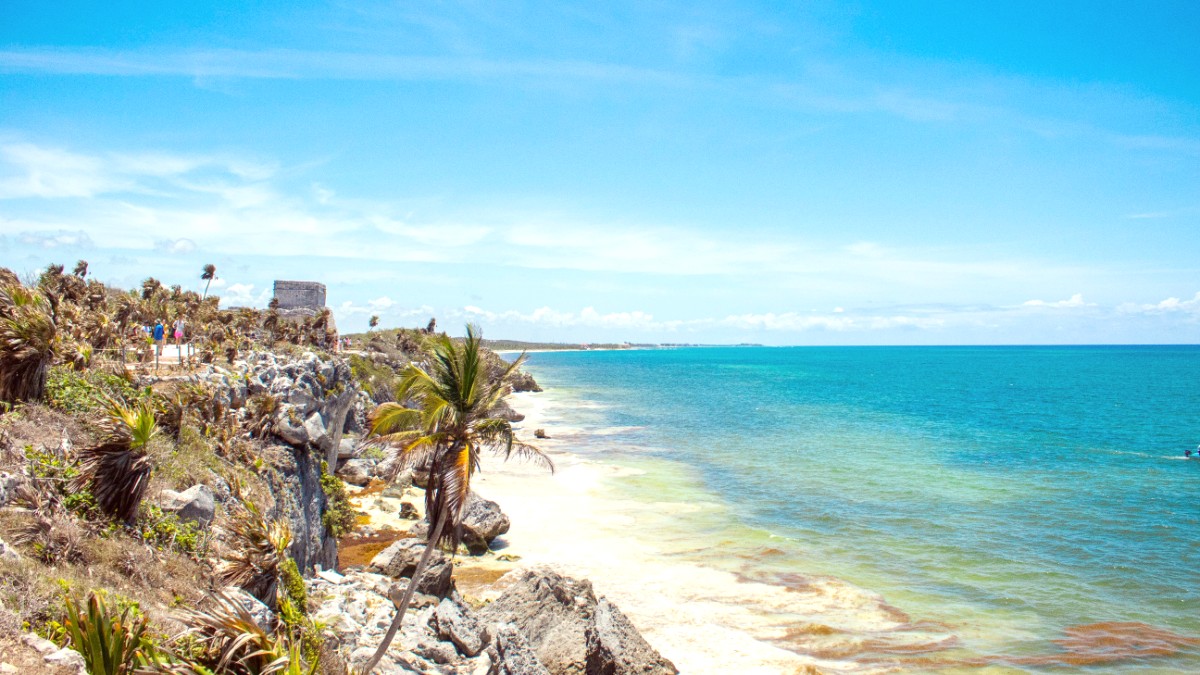
Yucatan Peninsula, Mexico
Sian Ka'a Biosphere Reserve, an UNESCO World Heritage site, dedicates itself to conservation. Use certified tour operators who follow strict guidelines.
The Mesoamerican Barrier Reef lies just offshore. Regulations exist against touching coral, anchoring in coral areas, and a strong recommendation to use only reef-safe sunscreen.
Tulum faces challenges with waste management. Reduce your footprint: use reusable water bottles, minimize single-use plastics, and carry out any trash.
Tulum thrives on its natural environment, making responsible practices important.
Despite the abundance of cenotes and underground rivers, water scarcity remains a concern in some parts of the Yucatán as development grows.
Consider donating to reputable carbon offset programs to mitigate the environmental footprint of your flights and other transportation.
Many hotels in Tulum, especially in the Zona Hotelera, market themselves as "eco-chic" or sustainable. They often incorporate practices like solar power, composting, and water recycling.
Choose tour operators that emphasize responsible tourism, small group sizes, and strict adherence to environmental regulations.
Carry a reusable water bottle and coffee cup to reduce single-use plastic waste.
Shop reusable productsOnly use mineral-based, reef-safe sunscreen when swimming in cenotes or the ocean to protect marine life.
Find reef-safe optionsSupport businesses genuinely committed to sustainability. Your choices contribute to preserving Tulum's natural beauty for future visitors.
Interacting respectfully with local culture enriches your travel experience.
Support local Mayan communities by purchasing directly from artisans and participating in community-based tourism initiatives that benefit them directly.
Learning basic Spanish phrases like greetings, "please," and "thank you" is greatly appreciated. Dress respectfully when visiting local towns, markets, or religious sites.
If you visit a local church or any sacred site, dress modestly (shoulders and knees covered) and behave quietly and respectfully, notably during services.
Ensure shoulders and knees are covered as a sign of respect when entering churches or sacred spaces.
Maintain quiet and respectful behavior, especially if a service or ceremony is taking place.
Ask permission before taking photos, and avoid flash photography inside religious buildings.
Your travel choices have a direct economic impact. Support practices that empower local communities and promote fair distribution of tourism revenue.
Look for tours or experiences directly operated by local Mayan communities. This revenue benefits the people who live in and care for these areas, promoting economic empowerment.
Seek out cooperatives or shops that explicitly state their commitment to fair trade practices. This helps make certain that artisans and producers receive fair compensation for their work.
Prioritize local restaurants, especially in Tulum Pueblo, over international chains. Choose small, independent guesthouses or family-run businesses.
If you wish to donate, research local charities or community projects that have a proven track record of positive impact.
Be aware of animal tourism that might involve exploitation or unethical treatment of animals (e.g., captive dolphins in small enclosures, unverified wildlife interactions).
Research animal welfare standards before participating in such activities. Prioritize interactions that support true conservation.
Report any suspicious or exploitative practices you encounter to local authorities or your embassy.
Engaging in or supporting unethical practices has severe negative consequences for local communities and the environment. Choose responsible tourism.